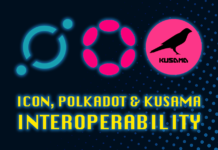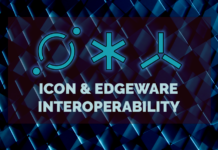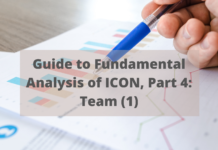Ever wondered what it’s like to work at The Iconist?
Well, today we have something different for you: we interviewed The Iconist’s very own longtime journalist and writer of the majority of our articles, Robin J. Wolf, to learn what it’s like covering ICON-related news in South Korea.
On writing about Korean blockchain
As a fluent Korean speaker with an extensive career in media and publishing, Wolf covers a lot of the blockchain news reported in the Korean press and interviews Korean-speaking ICON, ICONLOOP and P-Rep team members.
“ICON is obviously a global project, but it has a strong Korean component,” Wolf says. “It’s Korea’s flagship blockchain and cryptocurrency project, so if you’re living in Korea you know what it is. Even though the Korean crypto press occasionally points out that it’s kind of a shame the nation’s biggest cryptocurrency project is actually domiciled in Switzerland.”
ICON was incorporated overseas due to the Korean government’s restrictions against ICOs in 2017. Readers of The Iconist will be familiar with the local government’s many attempts at regulating the space, culminating in user identification laws for Korean exchanges enforced from September 2021 and tax laws to be implemented from 2022. However, the government is also quite keen on blockchain technology, and ICONLOOP has had many dealings with them over the years, such as a ship safety platform they launched last month.
“On a public policy level, it’s been interesting to watch the ways the Korean government has attempted to promote the blockchain side of the industry,” Wolf says. “The public sector is very pro-blockchain but the financial authorities have been very nervous about cryptocurrency, ostensibly because of the dangers that it poses to retail investors. As you see with the financial authorities in a lot of countries, cryptocurrency is seen as having the potential to disrupt existing financial practices and institutions.”
It’s even affecting local politics. “One very interesting thing that I’ve seen is how cryptocurrency has become an issue even in the ongoing presidential campaigns. Particularly the ruling party is addressing the cryptocurrency issue with an eye toward younger voters,” Wolf says.
Younger generations in Korea are very bullish toward cryptocurrency as compared to their parents. In fact, a recent survey found that 68% of Korean college students have invested in cryptocurrency. It’s no small wonder that this voting demographic will have an effect on politics going forward.
“For a lot of younger Koreans, the cryptocurrency component of blockchain — and increasingly NFTs — are viewed as a means of wealth acquisition,” Wolf says. “They look at their parents’ generation when real estate was the primary way to become financially independent, but this isn’t seen as a valid strategy anymore due to skyrocketing real estate prices. Cryptocurrency has offered them a possible way out.”
Korea’s strong focus on cryptocurrency has led to a number of high-profile blockchain projects. ICON’s primary local competitors are projects from Kakao, NAVER and Samsung, all three of which are massive corporations.
“ICON — or at least it’s chief technology partner, ICONLOOP — has an advantage in that it’s a dedicated blockchain company. It’s what they do. Whereas ICON’s biggest local competitors are involved in other businesses other than blockchain,” Wolf says. “Considering ICON’s main technology partner has a number of use cases already out there and strong relationships particularly with the public, private and financial sectors, I’d say that ICON is a very competitive project locally in Korea.”
So, what’s it like to write about ICON?
This writer can say from experience that writing for The Iconist is a very interesting job. We get to meet a lot of interesting people working on great projects, and everybody is very supportive of one another.
My colleague Mr. Wolf agrees: “Covering ICON news is not typically difficult. In particular, ICON’s new marketing team that was introduced during the ICON 2.0 launch has been super helpful and remarkably responsive in getting answers for us and so on. The P-Reps, too, are always happy to talk when we reach out to them. Even when things go wrong, everybody is willing to give us an interview. Communication hasn’t posed a problem.”
Writing about ICON’s technology, on the other hand, can often be very challenging. Especially considering that The Iconist’s job is to explain things in terms that everybody can understand.
“Because blockchain is such a new technology and cryptocurrency a new fintech innovation, things change on a constant basis. They’re also complex topics involving many different components: economics, finance, governance, technology and network architecture. Any one of those things is difficult enough to understand on its own,” Wolf says.
“As a writer, you need to know about all of these components and the way they all interact. In addition, you also need to follow the constant developments in the blockchain and cryptocurrency spaces. That’s tough.”
Maintaining journalistic objectivity — something we pride ourselves on here at The Iconist — can also be a challenge when you’re covering one project extensively. Wolf explains: “It can sometimes be hard to figure out the balance between our duty to inform stakeholders of the things they need to know, and also our duty to promote the ICON network.”
Do you think you have what it takes to write for The Iconist? We are always happy to accept guest posts — shoot us an email at [email protected] to discuss news angles with our editor.






